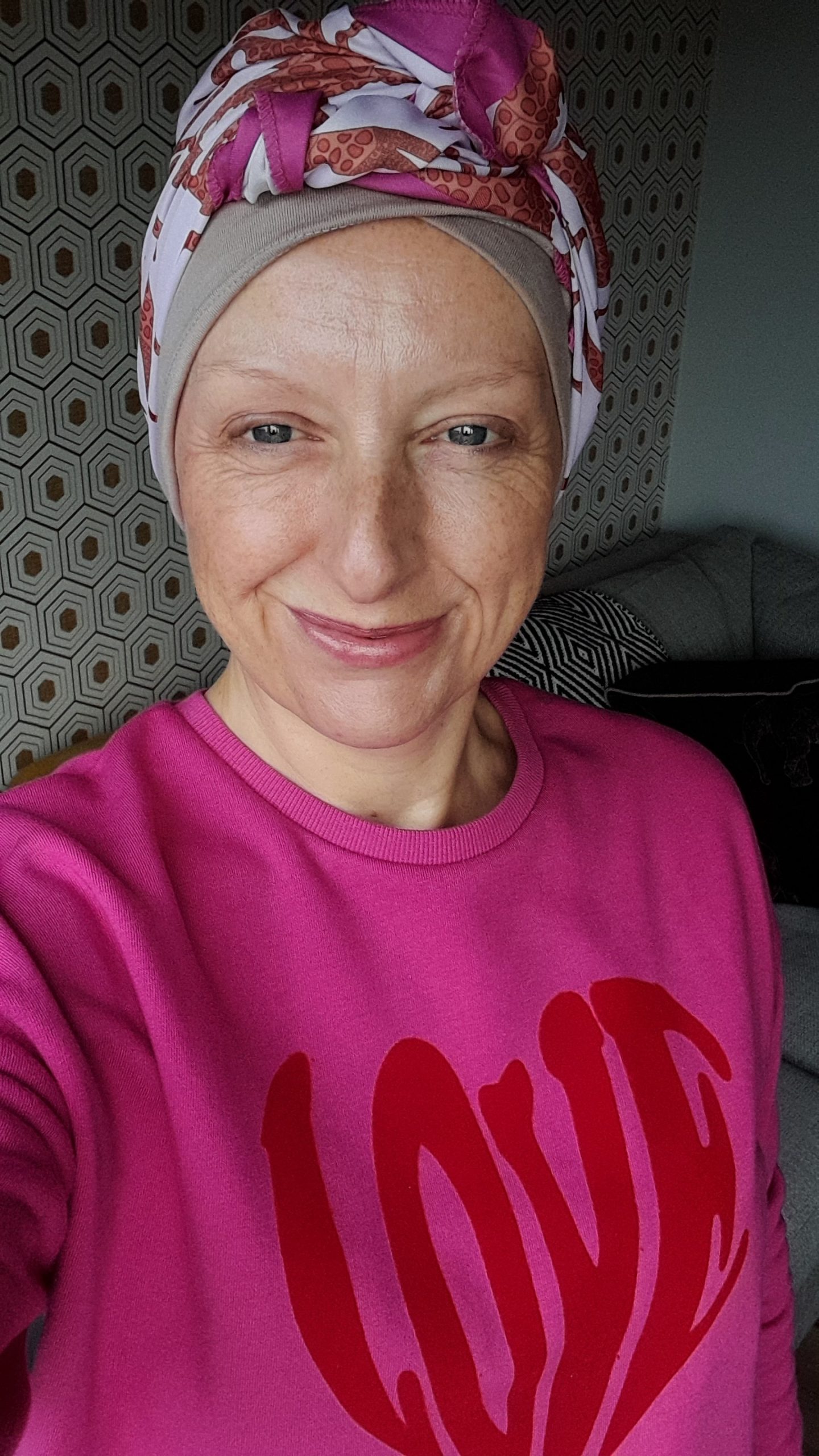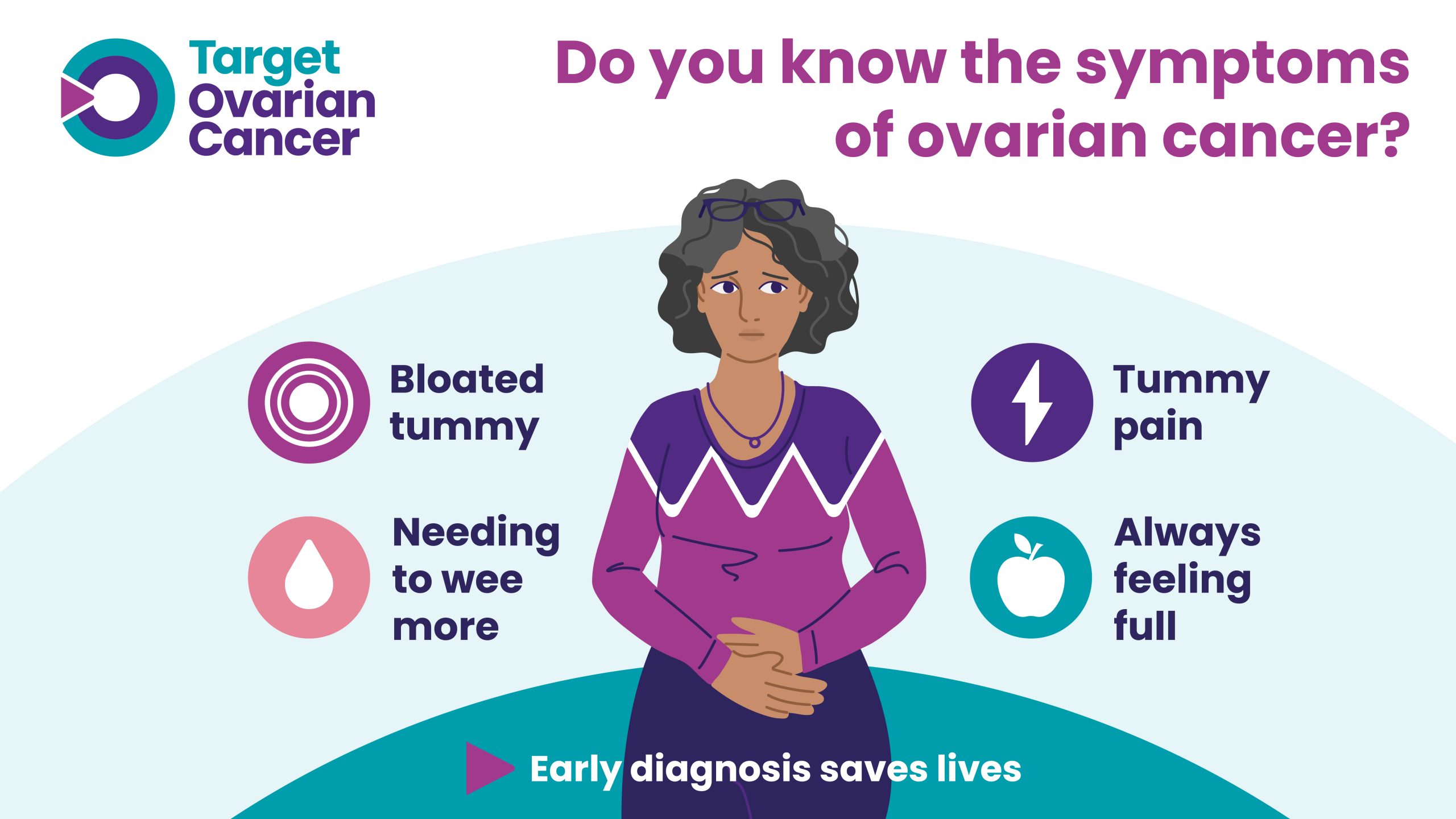Ovarian cancer is a devastating disease which affects around 600 women in Scotland every year, yet a new report by Target Ovarian Cancer reveals four in ten women are waiting more than three months for a diagnosis.
In its latest state-of-the-nation report, Pathfinder Scotland: Faster, further, and fairer, Target Ovarian Cancer’s research shows:
- A quarter of women with ovarian cancer reported visiting their GP three or more times before being referred for tests
- 41 per cent reported waiting more than three months from their first appointment with their GP to receiving their diagnosis
- Nearly half of women were never asked about the impact of treatment on their mental health
The report also highlights what needs to be done to address the unacceptable geographical variation that hundreds of women face in accessing the lifesaving surgery they need, found by Public Health Scotland[iv].
Target Ovarian Cancer concludes that progress is possible if urgent action is taken now to address shortcomings in awareness of the symptoms, diagnosis, treatment and support. It reveals that if diagnosis was faster, further support was available and access to treatment was fairer, there could be potential for more women to survive, live well with ovarian cancer and be supported from diagnosis and throughout treatment.
Annwen Jones OBE, Chief Executive of Target Ovarian Cancer, said: “It is just not acceptable that so many women wait so long for a correct diagnosis, leading to delays in treatment.
“Whilst we recognise that Scotland is leading the way with the shortest diagnostic pathway, the delays to women being referred for tests is staggering. We must do better and act faster to ensure women are getting the earliest possible diagnosis and earliest access to treatment, no matter where they live.

Photo: Annwen Jones OBE is the Chief Executive at Target Ovarian Cancer
Photo Credit: Target Ovarian Cancer
“It’s very concerning too to hear from women that they aren’t asked about the impact their diagnosis has on their mental health. We know how devastating this disease is and it is crucial they are signposted to the support that is needed to deal with the many challenges that come with an ovarian cancer diagnosis. This needs to be provided at the right time and in the right place. This need being unmet is also unacceptable.
“Ovarian cancer must become a health priority for progress to be made. For this to happen investment in awareness campaigns, diagnosis, and access to treatment, especially surgery and support is needed.”
Mags McCaul, 50, from North Lanarkshire, is more than familiar with the lack of progress in ovarian cancer in Scotland and has experienced the challenges in accessing surgery.
Diagnosed just last August after experiencing bloating and abdominal pain, Mags was given a stage 3c high-grade serous ovarian cancer diagnosis. After completing four sessions of chemotherapy she was suitable for surgery however faced a 12 week wait.
“Mags used her life-savings to fund the surgery and flew to England – as private surgery was unavailable in Scotland. Following her surgery and further chemotherapy, Mags has been told there is no evidence of disease however lives with anxiety of recurrence.
Mags wants to see improvements made in Scotland so no woman is left behind. She said: “Although my last scan in February shows no evidence of disease, I know it’s not over yet and I am far from OK.
“There are a number of things that the Scottish government need to address when it comes to ovarian cancer. Access to surgery is an unacceptable issue that affects the overall landscape of care that’s being provided in Scotland. This needs to change. If my husband and I hadn’t used our life-savings, I would have only just had my surgery. It’s a scary thought.

Photo: Mags McCaul pictured during chemotherapy treatment back in November 2022
Photo Credit: Mags McCaul / Target Ovarian Cancer
“Another is support for women who have ovarian cancer. Women need to have access to support and a choice to take it or leave it and I think it would be great if there was an automated referral process from the GP or secondary care team. It can be hard to find your voice and ask for support, I was well enough to find it but not everyone is.”
Target Ovarian Cancer is calling for a combination of national symptoms awareness campaigns and more training and support for GPs, which will lead to earlier diagnosis of ovarian cancer; access for all to treatment including an investment in research; and widespread improvements in support.
Target Ovarian Cancer targets what’s important to stop ovarian cancer devastating lives. To find out more about the charity or access its support line visit www.targetovariancancer.org.uk.


